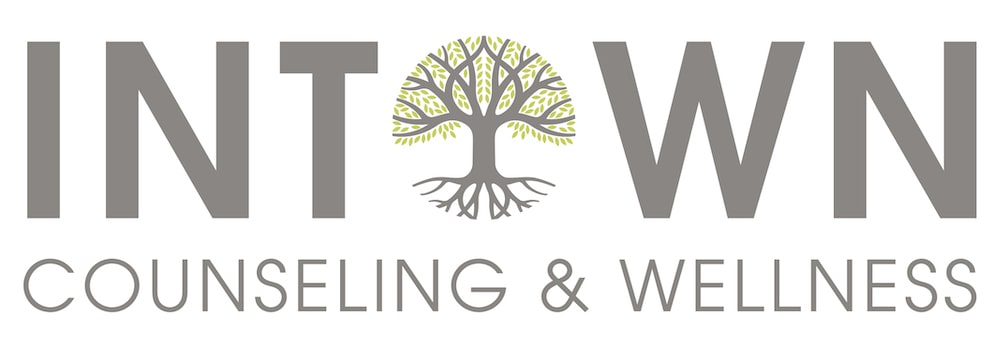Claiming Happiness in a Modern World: Process Group

Claiming Happiness in a Modern World: Process Group
Life’s complexities can often leave us feeling unsteady, overwhelmed, or disconnected. At Intown Counseling & Wellness, we invite you to join Claiming Happiness in a Modern World, a process group designed to help you cultivate resilience, create balance, and move toward a grounded and fulfilling life.
Through evidence-based practices, practical tools, and guided reflection, this group offers a structured space for exploring how to align your actions with your values, enhance your emotional stability, and build a foundation for lasting happiness.
Group Details
- Start Date: January 7, 2025
- Day/Time: Tuesdays, 4:30 PM – 6:00 PM (90-minute)
- Cost: $80 per session
- Location:
- In-person: Intown Counseling & Wellness, 2921 Piedmont Rd NE, Suite C, Atlanta, GA 30305
- Virtual attendance also available
- Facilitator: Scott J. Leenan, MS, LPC
What the Group Covers
This process group focuses on actionable strategies and research-supported approaches to support your journey toward greater well-being. Key topics include:
- Grounding Techniques: Learn practical methods like paced breathing, sensory grounding, and progressive muscle relaxation to calm your mind and body during stressful moments.
- Resilience Skills: Build coping mechanisms rooted in mindfulness, guided imagery, and cognitive reframing to enhance your emotional stability and flexibility.
- Happiness Habits: Explore daily practices based on positive psychology research, such as gratitude, journaling, and acts of kindness, to cultivate sustainable joy and satisfaction.
- Self-Awareness and Metacognition: Gain insights into your thought patterns and emotions, empowering you to approach challenges with clarity and purpose.
- Stress Management: Understand how to engage your parasympathetic nervous system to reduce anxiety and maintain calm even in difficult situations.
- Purpose and Fulfillment: Discover how aligning with your core values and creating intentional goals can lead to a more meaningful and balanced life.
Why This Group?
The techniques and insights shared in this group are designed to be practical, effective, and applicable to your everyday life. By focusing on concrete skills and evidence-based practices, you’ll develop tools that can help you:
- Approach stress with a calm and steady mindset.
- Build a grounded state of being that fosters long-term emotional stability.
- Create habits and routines that support happiness and well-being.
- Clarify your goals and values, ensuring your actions reflect what truly matters to you.
This group isn’t about quick fixes or lofty promises—it’s about equipping you with skills and knowledge to support resilience, balance, and personal growth over time.
A Message from Scott J. Leenan, MS, LPC
“As a facilitator, my focus is on creating a space where meaningful change can happen. This group is structured to provide you with practical tools and insights backed by research, helping you create a life that feels both balanced and intentional. Together, we’ll focus on small, steady steps toward claiming happiness in a way that feels sustainable and achievable.”
Take the First Step
To learn more about how this group can support your journey, or to secure your spot, contact us at (404) 478-9890 or visit our Contact Us page.
Reach Out Today About Claiming Happiness!

Imagine your life as your most essential project—a journey so meaningful it deserves thoughtful planning, nurturing, and a steady investment of time and energy. This group is about aligning your life with your core values, moving toward your highest potential, and connecting deeply with what truly matters. Here, you’ll find tools, support, and a community that sees and believes in your potential, encouraging and guiding you every step of the way. Just as successful ventures grow through clarity, intentional action, and continuous learning, so too does your journey toward personal fulfillment. This group offers a unique space where science meets heart—a setting where evidence-based techniques for resilience, emotional intelligence, and inner stability will equip you to shape your future intentionally. You’ll gain more than just strategies to manage stress or improve your mindset; you’ll be building a lasting foundation for inner balance and sustainable happiness that carries you forward.
Science-Based Happiness: Building Your Resilience Toolbox
Happiness and emotional stability require a foundation of knowledge, insight, and the practical application of effective tools. In this group, we will draw upon the latest research in psychology, neuroscience, and emotional health to give you an actionable framework for cultivating emotional stability and sustained happiness. With evidence-based approaches, we’ll guide you through techniques that calm the mind, manage stress, and help you build a grounded state of being. Far from just understanding happiness conceptually, you’ll gain an in-depth toolkit of actionable skills and insights that enhance mental clarity and emotional stability. This group functions as a collaborative think tank, providing a welcoming space to delve into topics like self-awareness, emotional intelligence, and cognitive control—all critical for taking control of your mental and emotional well-being in a lasting way.
Coping Mechanisms, Grounding Techniques & Happiness Habits
In our fast-paced, ever-changing world, staying present and grounded is more challenging—and more essential—than ever before. One of the core aspects of this group is learning to manage the “monkey mind,” that restless, chattering part of ourselves that fuels anxiety, distraction, and stress. Left unmanaged, the monkey mind can dominate our mental space, making it difficult to focus, feel at ease, or stay in control. By learning practical grounding techniques, you’ll be equipped to bring yourself back to the present moment, rooted in calm and clarity rather than swept away by endless streams of thought.
We begin our journey with grounding techniques—powerful, accessible methods to center both mind and body. These techniques, which include deep breathing exercises, sensory grounding (engaging with sights, sounds, smells, and textures around you), and Progressive Muscle Relaxation, are designed to create immediate shifts from stress to calm. Grounding practices like Paced Breathing (Box Breathing) and the 5-4-3-2-1 Grounding Technique help foster a steady sense of presence, empowering you to approach challenging moments with greater clarity, rather than feeling overwhelmed or reactive. Through grounding, you can return to yourself, anchored and stable, gaining the mental space needed to thoughtfully engage with life’s complexities.
In addition to grounding, we explore coping mechanisms aimed at building lasting resilience. These evidence-based techniques go beyond the basics, including Mindfulness, Meditation, Guided Imagery, and Loving Kindness Meditation, which encourage self-awareness and help you observe thoughts without judgment. Techniques like Cognitive Reframing allow you to identify and reshape unhelpful thought patterns, empowering you to face life’s difficulties with a balanced, constructive mindset. Additional methods, such as Gratitude practice, Tara Brach’s R.A.I.N. technique, Tipping the Temperature (Diver’s Reflex), Paired Muscle Relaxation, Tapping, and Journaling, each provide distinct ways to manage stress, process emotions, and cultivate a mindset of resilience. These techniques do more than offer temporary relief; they equip you with a toolkit for navigating life’s inevitable challenges with confidence, self-awareness, and poise, building a foundation of stability that will support you well beyond the group.

Understanding and Managing Emotions
In our process group Claiming Happiness in a Modern World, we’ll delve deeply into understanding our emotions and developing the skills to respond to life’s challenges with intention rather than reactivity. Guided by insights from trauma expert Bessel van der Kolk, we’ll explore how to recognize and manage what he calls emotional hijacking—those moments when our emotional mind takes over, often causing impulsive responses we later regret. By cultivating what we call a wise mind—a balanced state where emotional and rational minds work in harmony—we learn to approach situations thoughtfully and purposefully, rather than letting intense emotions dictate our actions. Through mindfulness practices and a reliable toolbox of coping mechanisms and grounding techniques, we’ll work toward creating this balanced interaction, empowering ourselves to make choices that align with our true intentions and values.
A crucial aspect of this journey is understanding our central nervous system, particularly the sympathetic and parasympathetic branches. The sympathetic nervous system triggers our “fight or flight” response, preparing us to react to perceived threats, while the parasympathetic system calms us, allowing us to relax, recover, and feel safe. As van der Kolk emphasizes in The Body Keeps the Score, managing these systems is essential for emotional stability and well-being. He explains, “Being able to feel safe with other people is probably the single most important aspect of mental health; safe connections are fundamental to meaningful and satisfying lives.” Trauma often disrupts our sense of safety, leaving us in a state of heightened alertness, hyper-vigilance, or avoidance. Many of the grounding techniques we practice—such as mindfulness, paced breathing, progressive muscle relaxation, and tapping—are designed to activate the parasympathetic system, helping us return to a balanced state and manage stress in real-time. By learning to influence these systems, you’ll gain practical tools for calming both mind and body, creating a foundation for approaching challenges with clarity, resilience, and calm.
We’ll also explore the profound impact of trauma on our bodies and minds, learning how it can condition us to experience heightened fear responses that may not serve us in the present. Trauma often traps us in survival-mode thinking, influencing our reactions to feel as though we’re still under threat. This group offers ways to recognize these trauma-induced responses and gently work through them, moving from a heightened state of fear and reactivity toward a place of safety, balance, and confidence. Together, we’ll cultivate a sense of grounded stability, equipping you to meet life’s demands from a place of resilience and connection rather than fear. By gradually reclaiming a sense of safety, you’ll open the door to deeper joy, fulfilling relationships, and a sustainable foundation for happiness.

Happiness Habits
Shawn Achor, a leading voice in positive psychology, offers practical and accessible steps for achieving happiness, reframing it as not just the end goal but a driving force behind success and well-being. His research shows that happiness is not merely the result of accomplishments but a powerful influence that can boost performance, enhance resilience, and enrich overall life satisfaction. This approach, which challenges the conventional idea that happiness follows success, aligns closely with the work of Martin Seligman, a pioneer in positive psychology. Seligman’s concept of authentic happiness expands on Achor’s ideas, emphasizing the importance of cultivating meaning, engagement, and positive emotion as pillars of a fulfilling life.
Achor’s “happiness habits” are daily practices designed to shift our mindset and build resilience, grounding us in positivity. These habits include expressing gratitude, performing acts of kindness, meditating, exercising, and journaling about meaningful experiences. According to Achor, each of these habits helps to “rewire” the brain, training it to focus on the positive and create a ripple effect that enhances our relationships, productivity, and overall outlook. Seligman’s research supports this, showing that regular engagement in meaningful, positive practices can increase both happiness and life satisfaction, helping individuals build a resilient foundation for navigating life’s challenges.
In our group, we’ll explore these happiness habits and how to integrate them into daily life, using Achor’s and Seligman’s insights as a guide. Together, we’ll work on cultivating practices that foster both immediate joy and enduring well-being, creating a mindset that strengthens our capacity to thrive in a fulfilling and balanced life.
Metacognition: Gaining Self-Awareness to Quiet the Monkey Mind
Central to taming the monkey mind is the practice of metacognition—thinking about your own thinking. By understanding how your mental processes affect your emotions and behaviors, you’ll learn to step back from automatic responses and gain control over your thoughts. This metacognitive approach allows you to evaluate not just what you think, but how you think, creating an elevated awareness that empowers you to make conscious choices. Over time, metacognition enhances resilience, allowing you to engage with life from a place of calm and deliberate action rather than reactivity. As you master metacognition, you gain not only self-awareness but also the freedom to direct your thoughts and emotions, aligning them with your goals and values.

Enjoyment, Satisfaction, and Purpose
Renowned social scientist Arthur Brooks identifies the “macro-nutrients” of a meaningful life as enjoyment, satisfaction, and purpose. These core elements provide a roadmap to crafting a life filled with purpose, resilience, and fulfillment. In this group, we’ll explore these foundational principles, helping you gain insights into the true components of happiness.
- Enjoyment vs. Pleasure—While pleasure offers quick but fleeting gratification, true enjoyment comes from engaging deeply in activities that challenge, enrich, and fulfill you. Unlike pleasure, which is often superficial, enjoyment brings a sense of meaning and satisfaction. It comes from engaging in experiences that require active involvement and offer long-term growth—learning a new skill, working on a creative project, or building meaningful connections with others. By focusing on enjoyment over pleasure, you’ll learn to cultivate happiness in a way that is sustainable and fulfilling, finding joy in the journey itself rather than seeking momentary highs.
- Satisfaction Through Achievement—Satisfaction is a deep-seated sense of accomplishment that arises from perseverance, resilience, and the gradual progress made toward meaningful goals. It’s not the thrill of instant success but the rewarding feeling that comes from working through challenges and growing stronger in the process. Satisfaction is about looking back on your journey, recognizing the efforts made, and appreciating the strength gained along the way. In this group, we’ll redefine success as a journey rather than an endpoint, celebrating each milestone and the resilience developed with each step forward. This shift in perspective allows you to find satisfaction not only in achieving goals but in the personal growth that comes from pursuing them.
- Purpose as Life’s Compass—Purpose provides direction, anchoring your actions and decisions in a deeper sense of meaning. It’s about aligning your daily choices with what truly matters, whether that’s family, community, personal growth, or spirituality. Purpose gives resilience, helping you endure life’s challenges with a sense of clarity and motivation. When your actions align with your core values, you experience a richer form of happiness—one that endures beyond fleeting pleasures. By exploring purpose in this group, you’ll gain clarity on what drives you, helping you live a life that feels both intentional and fulfilling.
Embracing Unhappiness as a Path to Growth
True resilience is about more than just seeking happiness; it’s about learning to welcome life’s challenges as powerful opportunities for growth. In Claiming Happiness in a Modern World, we’ll explore how embracing adversity can reveal deeper insights about ourselves and our values. In his Netflix documentary with Jonah Hill, Dr. Phil Stutz introduces the concept of “Agent X”—life’s unpredictable and often challenging elements that we cannot control. Agent X represents the difficulties and obstacles that everyone inevitably encounters, from minor setbacks to profound losses. Stutz’s approach encourages us not to resist or resent Agent X but to see it as a necessary force for growth. By learning to accept and work with adversity, we cultivate the resilience needed to navigate life’s hardships with an empowered mindset. This group will help you see challenges as opportunities for self-betterment rather than disruptions, shifting your perspective from avoidance to acceptance and growth.
Friedrich Nietzsche, the 19th-century German philosopher known for his explorations of human strength and authenticity, offers a powerful perspective on growth through adversity. He introduced the idea of the “darkest night of the soul,” those moments of intense suffering or despair that challenge us to confront our most fundamental truths. Nietzsche believed that these experiences, painful as they may be, are essential for uncovering our deepest values, strengths, and sense of purpose. Emerging from these dark nights, according to Nietzsche, brings a new clarity about what truly matters in life—authenticity, love, personal fulfillment, and a purpose beyond external markers like wealth, status, or power.
Nietzsche also recognized that we can find meaning by observing suffering around us, not just through our own hardship. Witnessing the struggles of others with empathy and understanding allows us to deepen our connection to humanity and gain insight into our own lives and values. In our group, we’ll explore how Nietzsche’s insights can guide us to find purpose in both personal adversity and in the challenges faced by those around us, using life’s most difficult moments as pathways to authenticity and a deeper connection to what genuinely matters.
A Holocaust survivor and author of Man’s Search for Meaning, Viktor Frankl offers a unique perspective on resilience. Frankl’s experience taught him that even in the face of unimaginable suffering, the search for meaning can transcend the pain. He believed that meaning is at the heart of human existence and that life’s purpose can often be uncovered in our darkest moments. Frankl famously observed that we have the freedom to choose our attitude toward our circumstances, even when we cannot change them. His approach emphasizes that while suffering is inevitable, our response to it can lead to profound personal transformation. For Frankl, meaning can be found even without experiencing tragedy firsthand; it can arise from empathetic understanding and reflection. In this group, we’ll discuss how to integrate Frankl’s approach, using our struggles to clarify what truly matters and live with intention.
Turning Insight into Action: Building a Blueprint for Change
Understanding something intellectually is one thing; putting it into action is what truly drives transformation. Many people struggle to turn intention into action, and that’s where this group makes all the difference. With regular meetings, accountability, and guidance, you’ll bridge the gap between insight and real-life change. This process group provides the structure, tools, and support to help you take practical steps toward building your best life, ensuring that your journey is not just a series of ideas but a roadmap to actual transformation.
Joining Claiming Happiness in a Modern World: Process Group is an opportunity to take a meaningful step toward resilience, balance, and personal growth. This group offers a structured and supportive space where you can develop practical tools, gain new perspectives, and focus on what matters in your life. With evidence-based techniques and professional guidance, you’ll cultivate the skills and mindset needed to navigate life’s complexities with clarity.
If this group resonates with you, we encourage you to explore how it can fit into your journey. Scheduling an initial consultation with Scott Leenan, MS, LPC, is a great way to discuss your goals and determine if this experience aligns with your needs.
For more information or to join the group, please contact us at (404) 478-9890 or visit our Contact Us page. We’re here to answer any questions and help you take the next step toward creating a life that feels intentional, balanced, and deeply fulfilling.
